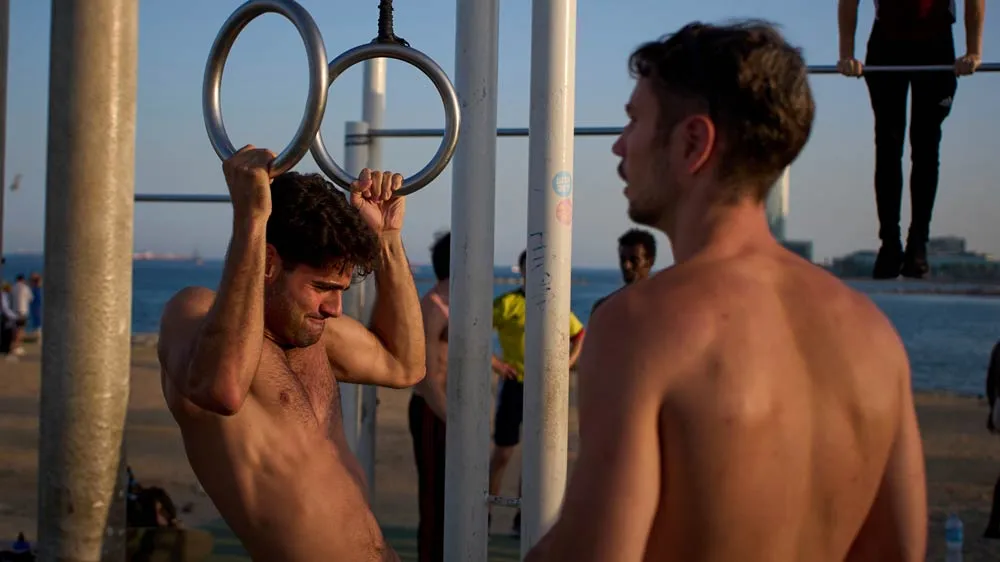November 13, 2013
Getting Involved Helps Yourself By Helping Others
Andrew Clark READ TIME: 5 MIN.
Jack Mackenroth has used the celebrity that came with being the first openly HIV-positive contestant on TV's "Project Runway" to help HIV service organizations and co-found two HIV-awareness campaigns. He attributes his activism to the inspiration of those came before him.
"I know that I am only alive because of members of ACT-UP and other activists so I have to pay it forward," he told EDGE.
Groups like ACT-UP, New York's Gay Men's Health Crisis and other early organizations pioneered the fight against a stigma that inhibited treatment and educating the public about ways to protect themselves. Seen initially as a disease only affecting gay men, the Reagan Administration and local governments ignored the pressing people with AIDS even as the body count kept accelerating.
In the face of official neglect, a small cadre of activists took it upon themselves to raise needed funds and pressure the government to quicken the pace of meds and even find ways to treat AIDS themselves. GMHC began with a core group of gay men who had to figure out for themselves what they could do. Their fund-raising efforts led to programs to care for those living with HIV and AIDS that went on to become models for similar organizations around the world.
During the darkest years of the epidemic in the early 1980s, the only money to fund such organizations continued to come almost entirely from volunteers within the LGBT community. Eventually, their voices pierced the wall of apathy and distaste among their elected leaders. The government began to release money, while the general public, for whom AIDS went from a pariah disease to an accepted cause, contributed to nascent AIDS organizations like GMHC and amFAR.
Walking Away From a Crisis
Like so many other worthy causes before it, however, as HIV and AIDS became the beneficiary of government programs and massive fund-raisers, activism waned. While the need for education and services remains at the same level as it ever was, the prolonged recession has resulted in less money from the government and donations from the public.
Many in the LGBT community are succumbing to a false hope that the worst is over. Unfortunately, a lowered sense of urgency has led to a spike in HIV-positive diagnoses.
"There is still support and interest from the LGBT community although not to the same degree there was," said Jane Shull, executive director of FIGHT, an AIDS service organization in Philadelphia. "Of course, we should all be grateful that the levels of suffering and death are so much lower now, even if it may make it more difficult to get people's attention in the LGBT community."
Changing demographics of new infections threatens to make the epidemic less relevant to the affluent white men who made up the first group fighting the epidemic in the early years, she added. That the rates are rising among the poor and people of color only emphasizes the need to open up their hearts and wallets.
"Although there appears to be some kind of an echo epidemic growing among young gay men," Shulll said, "in general these are young men who are nonwhite, less educated, and less connected to people with money than the more educated professional gay men who were first infected in the early 1980s. This group, while part of the LGBT community, does not have the resources to donate to AIDS organizations."
In October. Mackenroth, along with photographer Thomas Evans, and World Health Clinicians, launched HIV Equal, a social media-based campaign to fight the stigma associated with HIV and encourage people to get tested. The campaign is specifically targeting younger gay men who have become more at risk than ever.
Mackenroth credits GMHC and ACT-Up for helping him when he was first diagnosed in 1990. From delivering lunches for homebound people with AIDS, he went on to launch his own HIV-education campaign, Living Positive by Design and now, HIV Equal. "After I wrapped my head around that and realized I wasn't going to die, I quickly became involved in efforts to give back to people who weren't so lucky," Mackenroth said.
Volunteering Is Empowering
Fundraising may be difficult in a time of economic hardship, but volunteering and donating remain as important as ever. Organizations need activists not only to deliver services but to serve as ambassadors to the public. More to the point, those being diagnosed with HIV every day still need them to fight the stigma still associated with HIV infection.
Those who are HIV-positive will find working with HIV education and service groups not only worthwhile but empowering -- for themselves as well as others. "I think it is important for HIV positive people to be involved," Mackenroth said, "not just involved, but also open about their personal status, because it inspires other people who may be struggling and need role models. Visibility is incredibly powerful."
"I think over time, people know who you are and they see the work you do," Shull added. "It's not a matter of telling people things, but of showing them."
According to Mackenroth, large organizations need to do more to foster a personal relationship with worker bees. They need to find new ways of getting people to feel vested in their efforts.
"People like to feel a part of something," he said. "Try to get people involved beyond just asking them for money. People like to give money to something specific. If you can quantify the donation, that is very helpful.
"Those organizations helped me navigate a lot of legal, medical and housing issues when I was really young," Mackenroth added. "I am forever grateful."
This story is part of our special report: "Living Well with HIV". Want to read more? Here's the full list.


